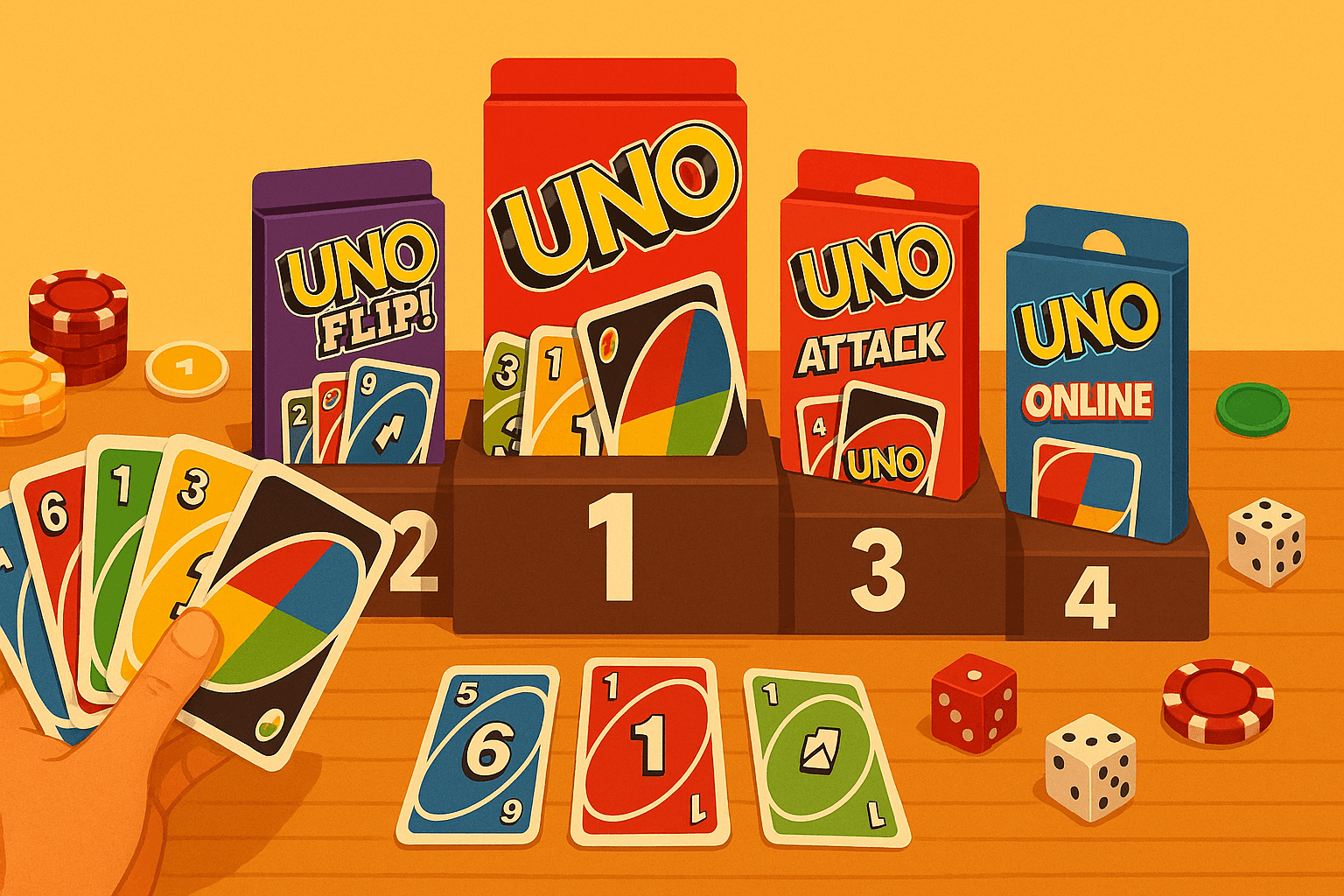
The History of Uno Card Game
Uno is one of the most iconic and widely played card games in the world. Loved by families, friends, and casual gamers alike, it has become a staple at game nights for more than 50 years. But how did this colorful, fast-paced game become the global phenomenon it is today? In this article, we’ll take a look at the fascinating history of Uno, from its humble beginnings in a small barbershop to its worldwide success.
If you’re also interested in learning how to play, check out our complete Uno rules guide for a step-by-step explanation.
Created By Adam Davis Fernsby
The Origins of Uno
When and Where It Started
Uno was invented in 1971 by Merle Robbins, a barber from Reading, Ohio, USA. Robbins loved playing Crazy Eights with his family but wanted to create a variation with a fresh twist. He designed a deck with colorful suits and action cards, giving birth to Uno’s unique gameplay.
Early Popularity
To bring his idea to life, Robbins and his family invested $8,000 to produce the first 5,000 decks. Initially, he sold Uno directly from his barbershop and through local communities. Word spread quickly, and Uno started gaining popularity among friends, families, and card game enthusiasts.
Uno Goes Mainstream
The International Games Acquisition
In 1981, Robbins sold the rights to International Games, which started producing Uno on a larger scale. This move helped the game reach national toy stores and specialty shops, making it more widely accessible.
Mattel’s Influence
In 1992, Mattel — one of the world’s biggest toy and game companies — acquired Uno. Under Mattel, Uno evolved into a global brand, available in dozens of languages and sold worldwide. Aggressive marketing campaigns and strategic collaborations turned Uno into a household name.
Evolution of Uno Over the Years
Introduction of Special Editions
Uno has continuously evolved by introducing themed decks and special editions that keep the game exciting for new generations. Some of the most popular versions include:
- Uno Attack – Adds a card-shooting machine for surprise plays.
- Uno Flip – Introduces a double-sided deck with “light” and “dark” rules.
- Uno Dare – Combines classic Uno with fun dares.
- Licensed collaborations with Harry Potter, Disney, Minecraft, and many more.
These variations have helped Uno remain fresh while keeping its original charm intact.
Digital Expansion
Uno successfully transitioned into the digital era, making its way onto mobile apps, PC platforms, gaming consoles, and online multiplayer servers. The game became even more popular during the rise of mobile gaming, where players from around the world can compete in real-time.
Fun Facts About Uno
Here are some fascinating facts that showcase Uno’s massive impact:
- Uno is sold in over 80 countries worldwide.
- More than 150 million decks have been sold since 1971.
- The longest recorded Uno game lasted 170 hours.
- Uno was inducted into the National Toy Hall of Fame in 2018.
Why Uno Remains So Popular
Uno’s enduring success comes from a combination of simplicity, strategy, and versatility:
- Easy to learn: Anyone can understand the basics in just a few minutes.
- Fun for all ages: Perfect for kids, families, and competitive groups.
- Endless variety: New versions and rules keep the game exciting.
- Strong global presence: Available everywhere, both offline and online.
Conclusion
From a small barbershop in Ohio to one of the most recognizable card games in the world, Uno’s journey is nothing short of remarkable. Its simple yet strategic gameplay, combined with decades of innovation, has secured its place as a timeless classic.



